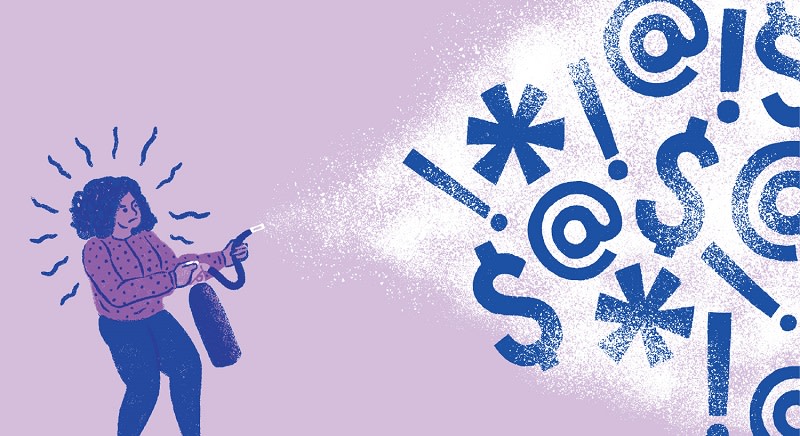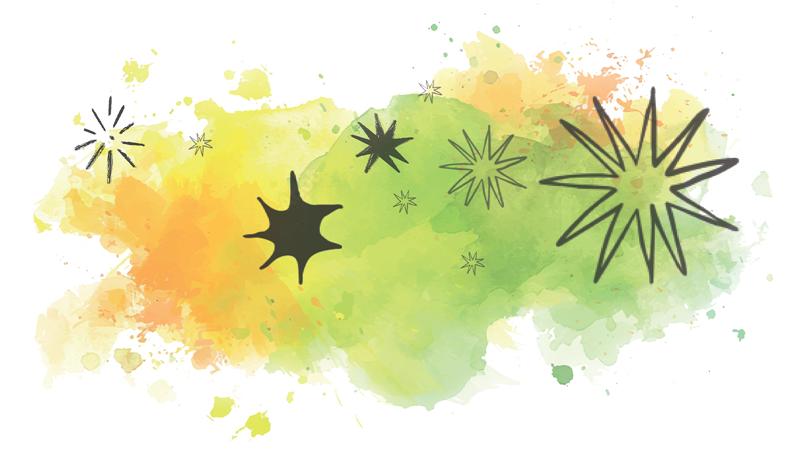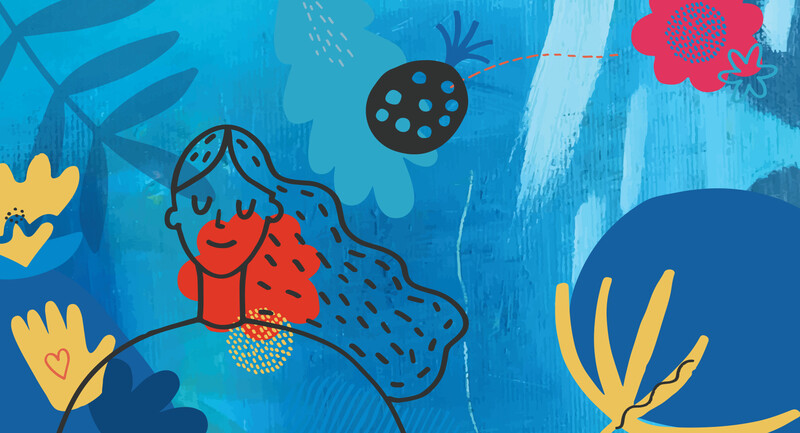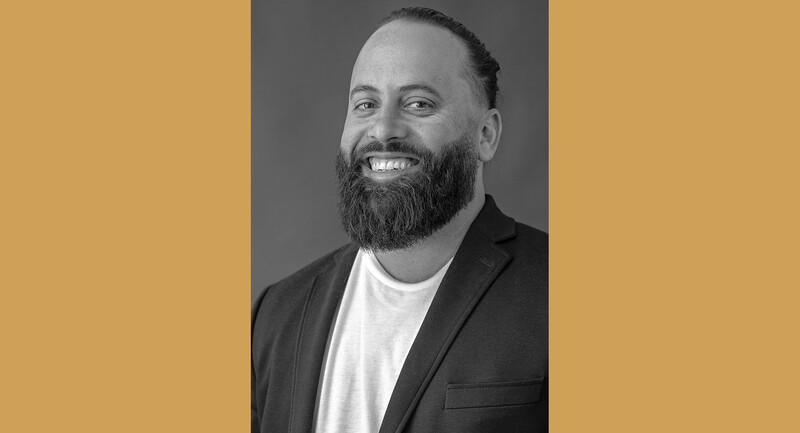At schools across the country and in our communities, hate-filled speech has been on the rise as students (and adults) emulate divisive and derogatory language heard in national rhetoric and policy. #USvsHate, an initiative I've codesigned with educators, defines "hate" as any time people denigrate, disrespect, or harm an individual or group as if their identity makes them an inferior or less valuable type of person.
A 2017 national study from UCLA found that after the 2016 election, teachers saw "increased incivility, intolerance, and polarization in classrooms" and "an increase in students making derogatory remarks about other groups during class discussions." In a March 2019 follow-up study of 505 high school principals, educators noted that students are "more and more willing to say outrageously racist, homophobic, 'whatever-phobic' things, believing it is their 'right' to do so." This year has unleashed new waves of anti-Asian racism during the COVID-19 pandemic and anti-Black racism during nationwide protests for racial justice.
When students (or colleagues!) repeat explicitly racist, Islamophobic, xenophobic, homophobic, anti-Semitic, sexist, and just cruel talk at school, it's educators' responsibility to respond. (In my book Schooltalk, I offer suggestions for responding to adults' speech. Here, I address responses to student speech specifically.)
Lawyers will debate the details in some cases, but educators can hang on to some basic principles as they negotiate issues around student speech, whether face-to-face or online:
Educators should never passively tolerate hateful speech. Instead, we forbid threat speech and harassment.
- We challenge all speech that denigrates or misrepresents "types of people."
- We treasure free speech, not as some "right" to disparage others without any consequences but as the ability to discuss ideas.
Each of these ways of handling speech is core to an educator's job.
We
Under the law, threats of violence are off limits in schools. A speaker can't threaten others with violence in a school rally, in a comment in the hallway or classroom, online, or in a scrawl on the playground. There is "no constitutional right to be a bully," as Sypniewski v. Warren Hills Board of Education stipulates.
Harassment is also forbidden in schools. Our civil rights laws require educators to protect public school students from harassment or other discrimination based on race, color, national origin, sex, religion, or disability and—after transgender student Gavin Grimm's August win in court—based on gender identity, gender expression, and sexual orientation. A school must maintain a safe and nondiscriminatory learning environment for all students to protect their right to learn. By federal law and regulation, when hostile environments on campuses impede learning, educators must take action to eliminate the hostile environment and its effects and prevent the harassment from recurring.
Educators need to respond to even a single epithet or slur by making absolutely clear to students that we don't harass people in school, in person or online. We need to state publicly, proactively, confidently, collectively, and often that hate, harassment, and intimidation have no place in our schools.
Clear and publicly available school policies against harassment can help foster safer learning environments. So can proactive activities where students are asked to respect, value, and learn from one another; to learn facts about communities and our shared society; and to promote messages of inclusion themselves. #USvsHate offers activities that support students to know and respect their peers—and to rethink and refuse the old, false ideas that lurk under hateful speech and frame some people as more valuable than others.
Educators can consider when formal punishment of harassers is needed to signal to a community that unlawful harassment is off limits, while prioritizing restorative dialogues that get students to consider and repair the consequences and causes of their speech. While educators can restrict hateful student speech (like lunchroom chants) for causing material and substantial disruption, the most powerful response is preventative: to talk explicitly in classrooms, assemblies, and discussion groups about how words can hurt and about the harmful ideas behind them.
We
Educators these days might hear students repeating cruel misinformation about communities of color, immigrants, or poor people, or openly praising white supremacy in class. The most important thing to do is respond. Educators should never stay silent in the face of speech devaluing or misrepresenting people. Instead, we should model what it looks like to challenge, engage, and question that speech and press openly for respect: "We don't say that here, because such language is harmful to people and our community." (Teaching Tolerance's Speak Up at School initiative has other helpful sentence starters.) Even a derogatory remark said with a laugh requires a response: "Those words hurt people"; "Your comment has the effect of _________."
It is also important to question inaccurate or false claims and to press instead for learning and the engagement of facts. Everyday talk (by students and adults) can distort other people's families, cultures, histories, and neighborhoods and falsely deem some groups as less valuable, skilled, or deserving of opportunity. It's our role to invite evidence-based reasoning, ongoing learning about complex social issues, and a deeper understanding of history and contemporary lives.* As a scholar of antiracism, I do not define fact-based analysis of white privilege or critical analysis of "white supremacy" in U.S. history, law, and society as "hateful." I consider such teaching essential. (See Schooltalk and usvshate.org's "Professional Resources" and "Lessons" tabs for professional development tools to frame responses.)
Though we don't censor student perspectives that we simply disagree with politically or personally, we challenge speech that is harmful to others, inaccurate, or false. As a lawyer friend said to me, "Free speech gives you the right to speak your view, but not to avoid criticism for it." Indeed, the U.S. Constitution protects the ability to challenge each other's language and claims.
We
The ability to debate ideas and claims is a central educational value: If I just censor others' ideas, they might later censor mine. It's why we don't preemptively outlaw all potentially "offensive" ideas or political speech from our students. It's also why we don't simply ban offensive ideas or political speech from our streets. We instead discuss speech's content and consequences. We assess speech for its factual basis.
And to keep schools safe for discussing ideas, we must draw the line at harassment and threats so that we can debate ideas.
Passivity and silence are never the answer. If left undiscussed, an inaccurate claim can metastasize into hate. If left unchallenged, hateful speech can escalate into threat. We have seen nationally how leaders and influencers who fail to send clear signals to speakers voicing intimidation, distortion, and hate embolden more speakers to threaten with physical violence as well as words.
We treasure the freedom to debate ideas and perspectives in schools. And to protect schools as places for the discussion of ideas, we must challenge speech that distorts and degrades—and forbid any threat or harassment that endangers learning and lives. It's our job.






